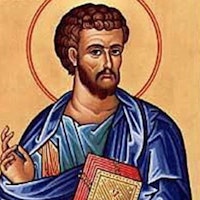Glory to God in the highest, and on earth peace, good will among men!
Glory to God in the Highest
Theme: Peace
The angel Gabriel was sent from God to a city of Galilee named Nazareth, to a virgin betrothed of a man whose name was Joseph, of the house of David; and the virgin’s name was Mary. And he came to her and said, “Hail, O favored one, the Lord is with you!” But she was greatly troubled at the saying, and considered in her mind what sort of greeting this might be. And the angel said to her, “Do not be afraid, Mary, for you have found favor with God. And behold, you will conceive in your womb and bear a son, and you shall call his name Jesus.
He will be great, and will be called the Son of the Most High; and the Lord God will give to him the throne of his father David, and he will reign over the house of Jacob forever; and of his kingdom there will be no end.”
And Mary said to the angel, “How shall this be, since I have no husband?” And the angel said to her, “The Holy Spirit will come upon you, and the power of the Most High will overshadow you; therefore the child to be born will be called holy, the Son of God… For with God, nothing will be impossible.” And Mary said, “Behold, I am the handmaid of the Lord; let it be to me according to your word.” And the angel departed from her.
In those days a decree went out from Caesar Augustus that all the world should be enrolled. This was the first enrollment, when Quirinius was governor of Syria. And all went to be enrolled, each to his own city. And Joseph also went up from Galilee, from the city of Nazareth, to Judea, to the city of David, which is called Bethlehem, because he was of the house and lineage of David, to be enrolled with Mary, his betrothed, who was with child. And while they were there, the time came for her to be delivered. And she gave birth to her first-born son and wrapped him in swaddling clothes, and laid him in a manger, because there was no place for them in the inn.
And in that region there were shepherds out in the field, keeping watch over their flock by night. And an angel of the Lord appeared to them, and the glory of the Lord shone around them, and they were filled with fear. And the angel said to them, “Be not afraid; for behold, I bring you good news of a great joy which will come to all the people; for to you is born this day in the city of David a Savior, who is Christ the Lord. And this will be a sign for you: you will find a babe wrapped in swaddling cloths and lying in a manger.” And suddenly there was with the angel a multitude of the heavenly host praising God and saying,
“Glory to God in the highest, and on earth peace, good will among men!”
Saint Luke, also known as Luke the Evangelist, was born a Greek and a Gentile in Antioch, Syria. He was a physician and it is believed that he may have also been a slave, as it was not uncommon in his day for slaves to be educated in medicine so the family would have a resident physician. He was the first Christian physician and was venerated by the Catholic Church as the patron saint of physicians and surgeons.
Luke joined Paul at Troas in the year 51, accompanying him from Macedonia to Philippi. It is very possible that Luke provided medical assistance to Paul when he had been beaten, stoned, or nearly drowned while evangelizing to the Western Roman Empire. Luke explains in the introduction to his gospel that his writings were inspired by close association with Paul and his companions.
In the stained glass window at St. John's Episcopal Church in Stamford, Connecticut, St. Luke is shown holding a book that represents his Gospel. In his other hand, he holds a plant, representing healing herbs. Luke remained with Paul to the end of his life, even during his imprisonment and sufferings, "Only Luke is with me" (2 Timothy 4:11).
Luke is the only Gentile to have written books in the Bible. He is the writer of the third Gospel and the Acts of the Apostles and his writings have been proven to be historically accurate.
In the third Gospel, Luke emphasizes Christ's compassion for sinners and for those who suffer. The gospel of Luke focuses on the poor and oppressed, encouraging tenderness and compassion for the less fortunate. The story of Lazarus and the Rich Man who ignored him is told in Luke's gospel, as is the parable of the Good Samaritan.
The Gospel of Luke stresses the importance of evangelizing to the Gentiles. In the Gospel of Luke, we hear Jesus praising the faith of Gentiles such as the widow of Zarephath and Naaman the Syrian (Lk.4:25-27), and we hear the story of the one grateful leper who is a Samaritan (Lk.17:11-19).
Unlike the Jewish writings, women have an important place in Luke's gospel. Luke writes about the women who accompanied Jesus, such as Mary Magdalene, Joanna, Susanna, and Martha and Mary, and "many other women who used their own resources to help Jesus and his disciples" (8:1). Luke also writes about the birth of Christ from Mary's point of view and she is especially important in Luke's gospel.
It is only in the gospel of Luke that the story of Mary's Annunciation, her visit to Elizabeth, the Magnificat, the Presentation and Jesus' remaining in Jerusalem are told. In Luke's gospel, we learn the words spoken by the angel to Mary at the Annunciation, "Hail Mary, full of grace" and Elizabeth's words to Mary, "Blessed are you and blessed is the fruit of your womb, Jesus."
Luke's Christian ministry can be followed in the book of Acts. Up until the sixteenth chapter the story of Acts is written in the third person, much like an historian recording facts. The voice of the narrator then changes to first person and scholars believe this is done at the time Luke first joined Paul at Troas in the year 51. The book of Acts switches back to third person and scholars believe that this reflects a period in time when Luke was not present during the events that are recorded.
Though some historians claim that St. Luke was martyred after the death of Saint Paul, others say he lived a long life, dying at the age of 84 after settling in Greece to write his gospel.
The Gospel of Luke
Wilson, Andrew, editor. World Scripture - a Comparative Anthology of Sacred Texts. Paragon House, 1991, p. 424 [Luke 1.26-2.14].

Saint Luke
Theme: Peace


Commentary About Luke 2.14 [And Context Passage Luke 1.26-2.14]
The phrase “Glory to God in the highest, and on earth peace, good will among men!” is a magnificent proclamation made by an angelic host in the Gospel of Luke (2.14), at the momentous event of Jesus’ birth. This divine declaration encapsulates two potent themes: the glorification of God, and the desire for peace and good will on earth. The scene unfolds with a multitude of heavenly beings praising God and setting forth these eternal messages.
The opening words, “Glory to God in the highest,” bear witness to the angels’ affirmation of God’s supreme stature. The term “highest” denotes the unparalleled eminence of God, reflecting reverence and adoration toward the divine. Such acknowledgment of divinity’s magnificence is a fundamental aspect found in many faith traditions, tying believers of different walks together with its universal resonance.
As for the second half of the proclamation, “on earth peace, good will among men,” this carries a deeply heartfelt wish for global harmony and benevolence among humans. Peace and good will transcend cultural and religious differences as universal aspirations of all humanity. Given that the setting of this proclamation is the birth of Jesus, often referred to as the “Prince of Peace,” these hopes for peace and good will become even more poignant. Thus, this declaration made by the celestial chorus is not just an ancient narrative. It radiates the enduring truth about the everlasting values of peace and good will, which remain central to personal and collective well-being in societies across time and place.
Luke 2.14
The angelic host’s proclamation at the birth of Jesus, the prince of peace: “Glory to God in the highest, and on earth peace, good will among men!”
Related Quotes
Copyright © 2017 – 2026 LuminaryQuotes.com About Us